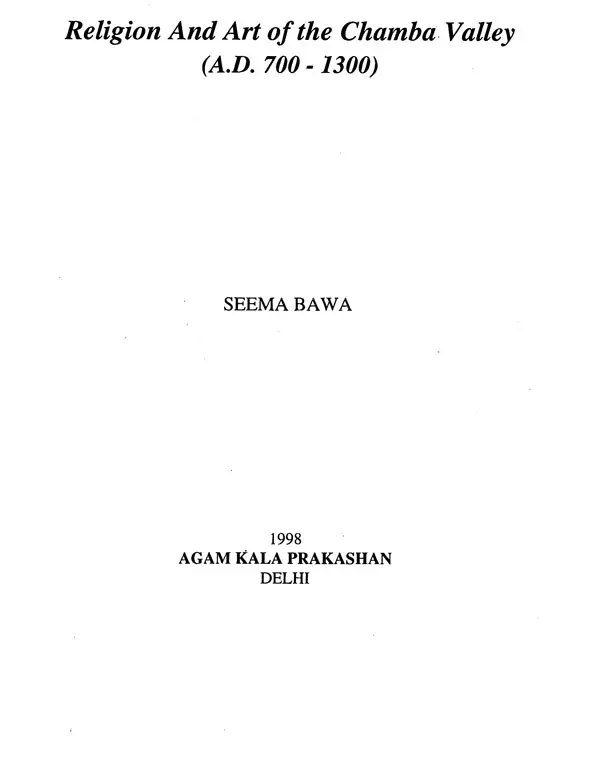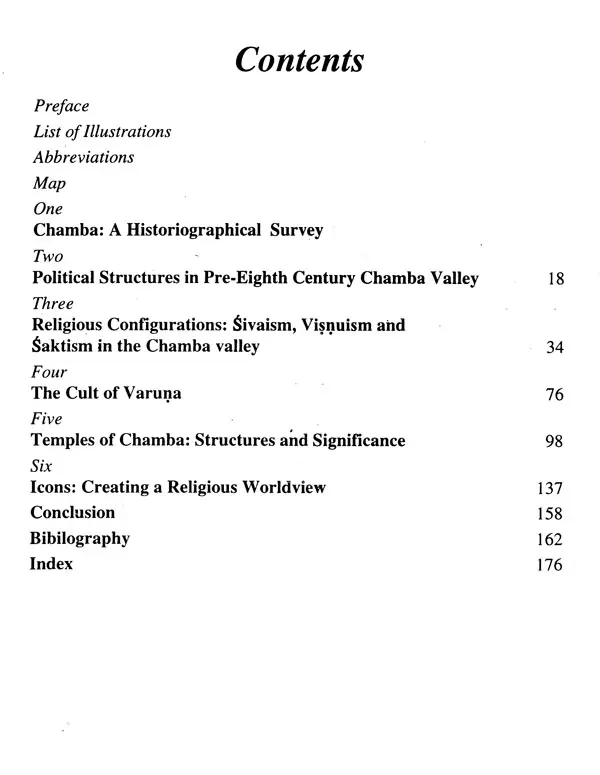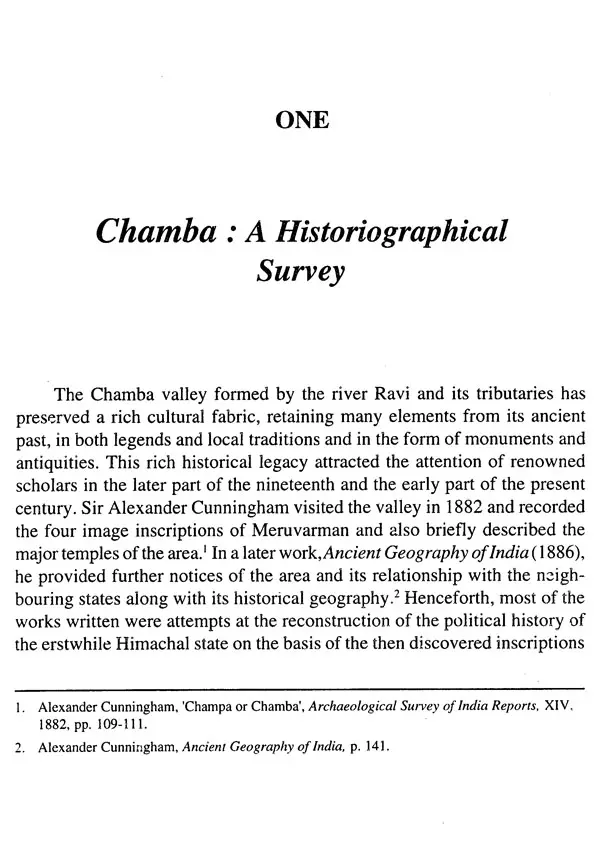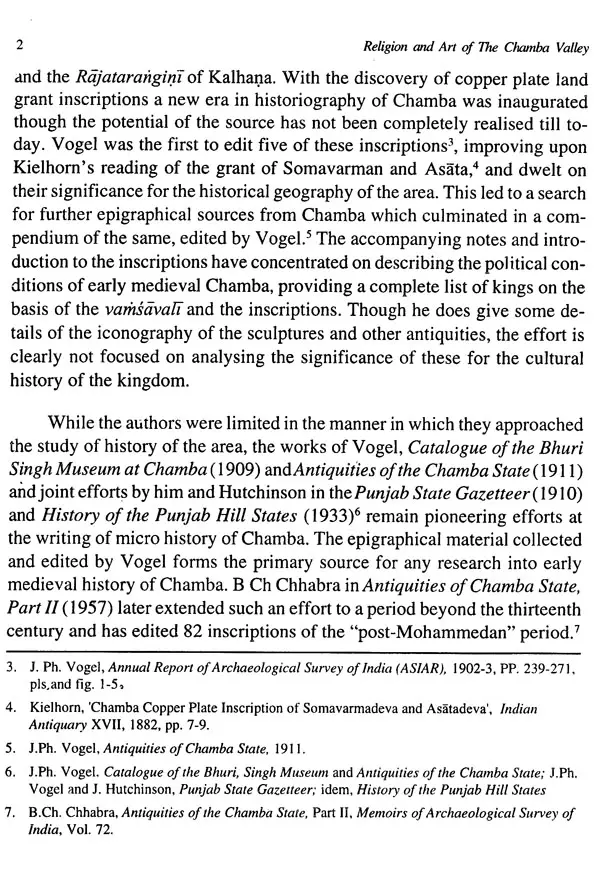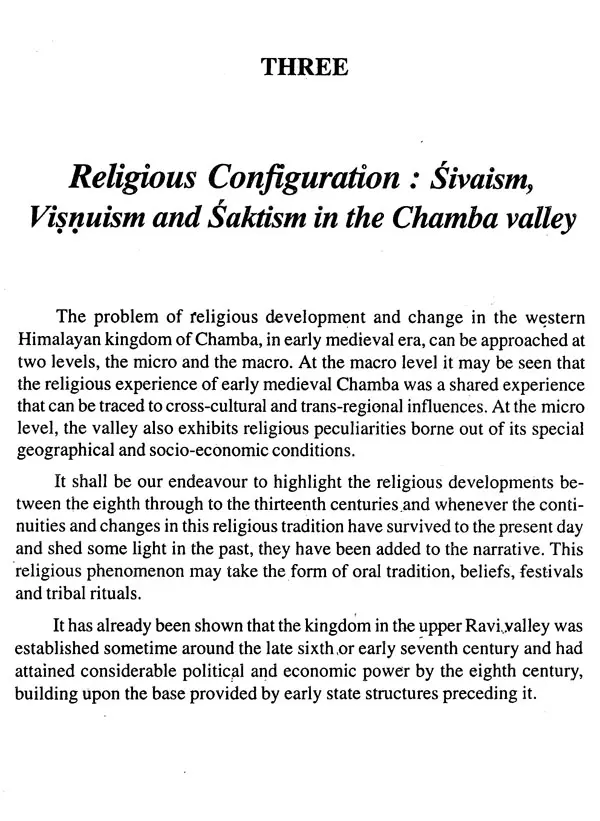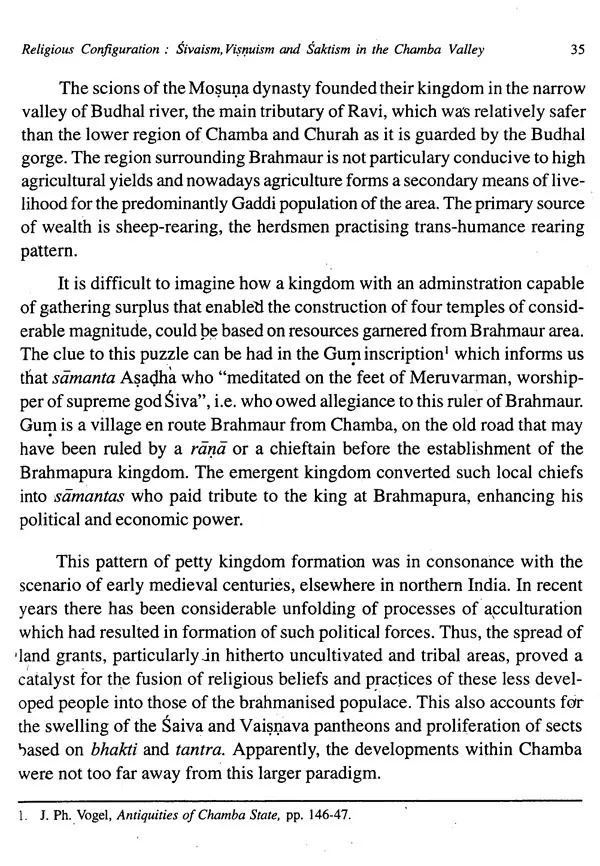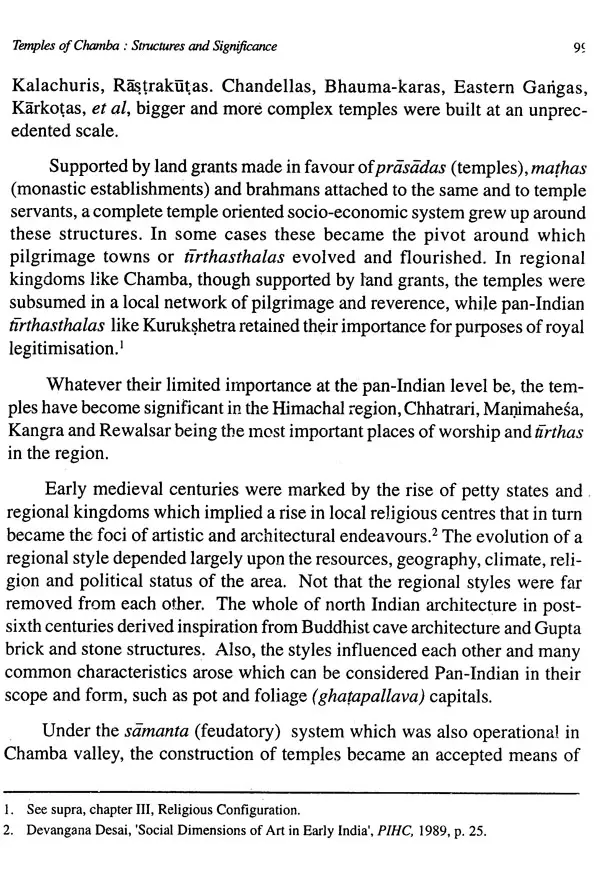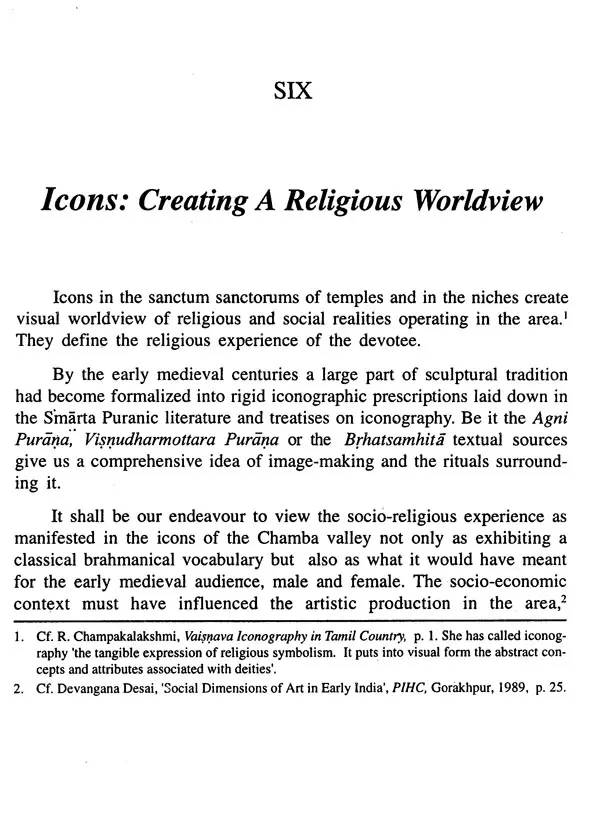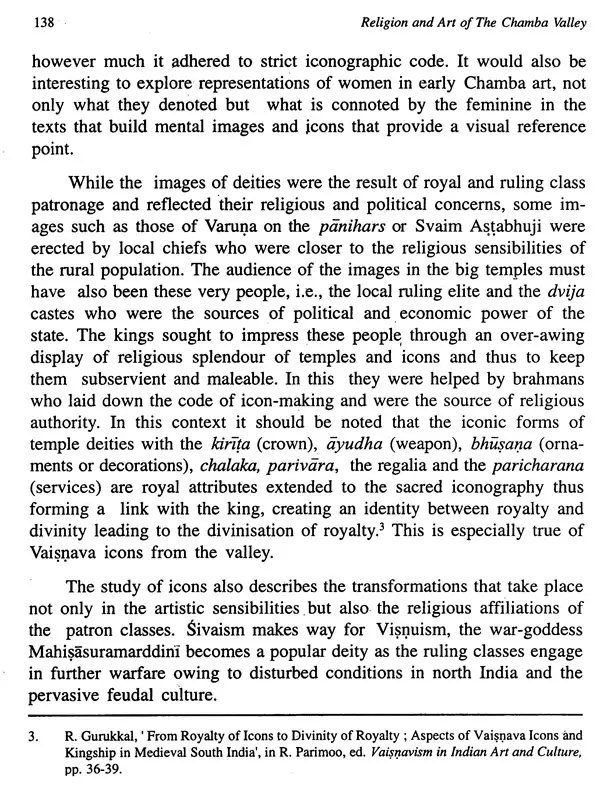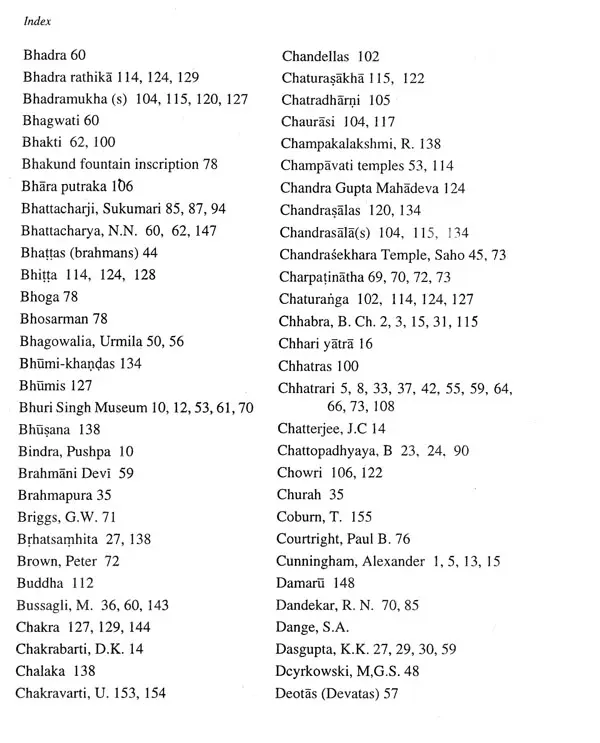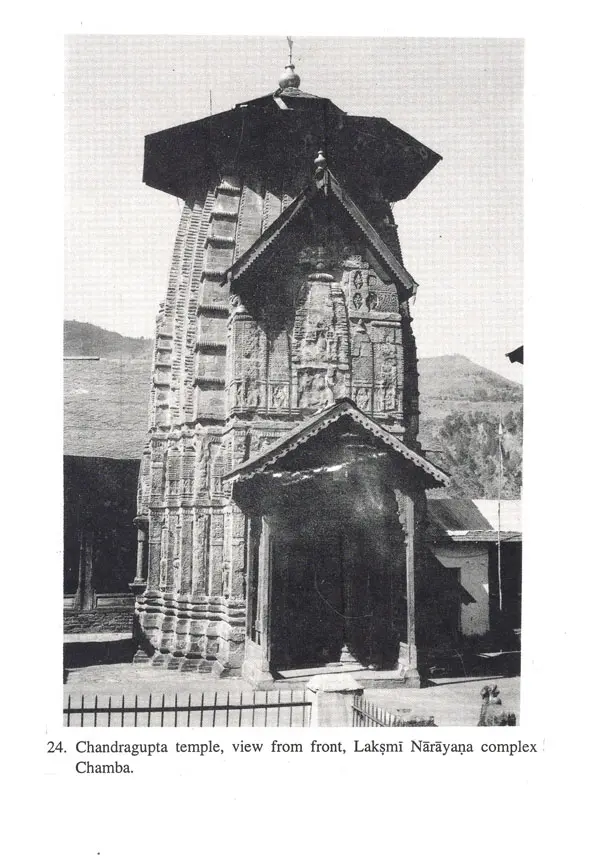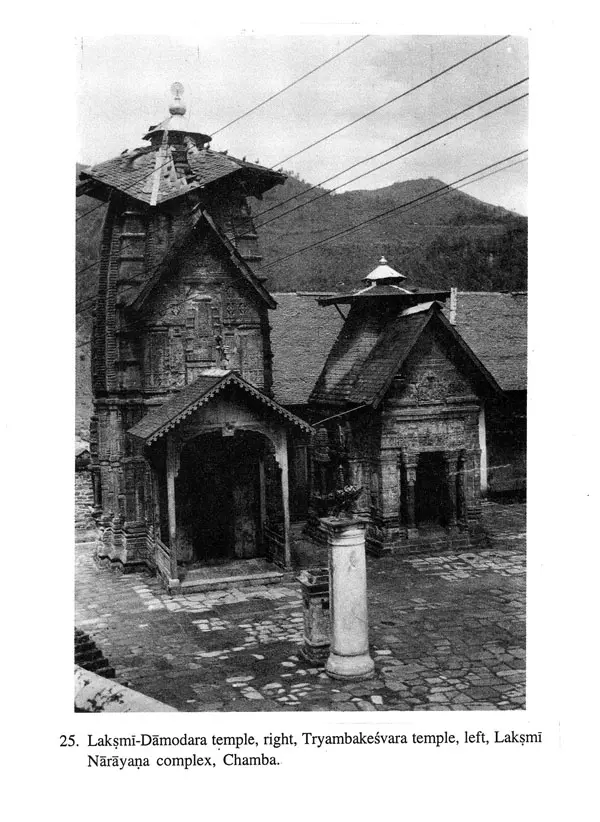
Religion and Art of The Chamba Valley
Book Specification
| Item Code: | UAO486 |
| Author: | Seema Bawa |
| Publisher: | Agam Kala Prakashan, Delhi |
| Language: | English |
| Edition: | 1998 |
| ISBN: | 8173200386 |
| Pages: | 239 (B/W Illustrations) |
| Cover: | HARDCOVER |
| Other Details | 10.00 X 7.50 inch |
| Weight | 740 gm |
Book Description
The process of history writing on Chamba has hitherto ignored the element of history of religion. The book endeavours to fill this gap and provide a deepe r insight into this relatively uncovered sphere of study.
Here is an effort to explore the nexus between religion and art of early medieval Chamba, at both the micro and macro levels, demonstrating pan Indian and cross cultural influences along with regional pecularities. The book attempts to study elite royal and popular elements, using not only epigraphic, sculptural and monumental sources but also oral history of the area.
The author has revealed interesting sub-stratum of religious configuration, ranging from non-brahmanical cult such as Varuna to patriarchic-royal Visnu worship by the Mosuna dynasty, taking into account historical geography and patronage patterns.
Iconography of the area is also scrutiised specially in context of gender delineation of icons, arguing that images and texts regarding the goddess convey a plurality of religions tradition.
Seema Bawa has done her higher education in history from Delhi University. Her articles have appeared in proceedings Indian History Congress, Historical Diversities and Women and Literacy (UNESCO and NLM. 1996). She has also worked as researcher for Discovery of India, a permanent exposition at Nehru Centre, Bombay.
She has curated an exhibition of works of women artists, Shatadru for Lalit Kala Academy in 1996. She has also written texts and catalogues for many exhibitions such as Sakshara, Shamiana, Sabala and Swatantrata.
Seema Bawa is a well known name in contemporary art whose articles as art critic have appeared in the Pioneer, The Times of India, Design and Interior and other journals. She has been associated with Indian and international television projects on Indian art, history and society. She is also an Editor (Hony) for ARTIMES, a Magazine of Living Arts.
She has travelled extensively in India, Europe and North America and has a special interest in trekking and photography.
She is presently teaching history in Sri Aurobindo College, Delhi University.
Having spent most of my childhood summers in Dalhousie, I witnessed a constant influx of Gaddi and Gujjar tribes people into our household. They carried with them Chambyali myths, legends and beliefs. This environment combined with the sight of awe-inspiring temples set high in mountains, became the source of inspiration for this research.
The work aims at examining the complex religious structures that evolved in early medieval Chamba state. The question that was the focal point of the study was not only the nexus between the production of art and religion living and historical manifested as it was in panihars, wayside shrines and huge temple shikhars. Rather, the other side, as to how this was controlled and consumed in early Chambyali society in terms of power equations, gender and space also remained an area of interest.
While writing this text I have piled up many debts that I can only acknowledge, never repay. To Professor K.M. Shrimali I owe thanks for guiding and helping me through this research. B.M. Pande of the Archaeological Survey of India not only encouraged my efforts and helped me with research material but was also pivotal in prodding me into getting it published. Nandesh Sharma of Bhuri Singh Museum, Chamba and P. Mehndiratta and J. Yadav of American Institute of Indian Studies, Varanasi extended all facilities at their disposal. The A.I.IS and the A.S.I. provided some photographs included in this work for which I am grateful. The staff of National Museum Library, ICHR and Nehru Memorial Museum and Library also deserve thanks. The ICHR authorities provided a travel and study grant for this research.
**Contents and Sample Pages**
